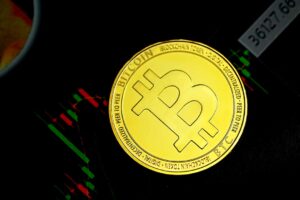Global Forex Trading: Navigating Economic and Political Factors
In the ever-changing landscape of the global economy, forex trading has emerged as a popular investment opportunity. The foreign exchange market, commonly known as forex, is the largest and most liquid financial market in the world, with trillions of dollars being traded on a daily basis. As a result, understanding and navigating the economic and political factors that influence forex trading is crucial for success.
One of the primary factors that affects forex trading is the state of the global economy. Economic indicators such as GDP growth, inflation rates, and employment figures play a significant role in determining the value of a country’s currency. For instance, if a country experiences strong economic growth, investors may be more inclined to buy its currency, leading to an increase in its value relative to other currencies. On the other hand, if a country’s economy is struggling, its currency may depreciate as investors seek more stable investment opportunities elsewhere.
Furthermore, interest rates set by central banks also play a vital role in forex trading. Central banks use interest rates as a tool to control inflation and stimulate or slow down economic growth. When a central bank raises interest rates, it makes investing in that country’s currency more attractive, as higher interest rates offer better returns. Consequently, this can lead to an appreciation of the currency. Conversely, when a central bank lowers interest rates, it becomes less attractive to invest in that currency, potentially leading to depreciation.
Political factors also heavily influence forex trading. Political stability and the overall geopolitical climate of a country can impact its currency. Investors tend to favor countries with stable political systems and strong institutions, as they provide a sense of security and confidence. In contrast, countries facing political turmoil or uncertainty may experience a decline in their currency’s value. For example, during times of political unrest or elections, currency markets can become highly volatile, leading to rapid fluctuations in exchange rates.
Trade policies and international relations between countries also have a significant impact on forex trading. Governments often implement protectionist measures, such as tariffs and import restrictions, to safeguard domestic industries and promote economic growth. These policies can lead to changes in exchange rates as they affect the supply and demand dynamics of currencies. Additionally, trade disputes between countries can create uncertainty and volatility in forex markets, as investors assess the potential impact on global trade and economic growth.
In recent years, technological advancements have revolutionized forex trading, allowing individuals and institutions to access the market with ease. Online trading platforms provide real-time data and analysis tools, enabling traders to monitor economic and political developments and make informed trading decisions. However, it is essential to approach forex trading with caution and a thorough understanding of the factors at play.
Successful forex traders employ various strategies to navigate the complex web of economic and political factors. Fundamental analysis involves studying economic indicators, central bank policies, and geopolitical events to determine the long-term trend of a currency. This approach aims to identify currencies that are undervalued or overvalued based on economic fundamentals. On the other hand, technical analysis relies on chart patterns and historical price data to predict short-term price movements and identify entry and exit points.
In conclusion, global forex trading is a dynamic and ever-evolving market influenced by various economic and political factors. Understanding these factors is crucial for success in forex trading. Economic indicators, interest rates, political stability, trade policies, and international relations all play a significant role in determining the value of currencies. Traders must stay informed, employ sound strategies, and remain adaptable to navigate the complexities of the forex market.





